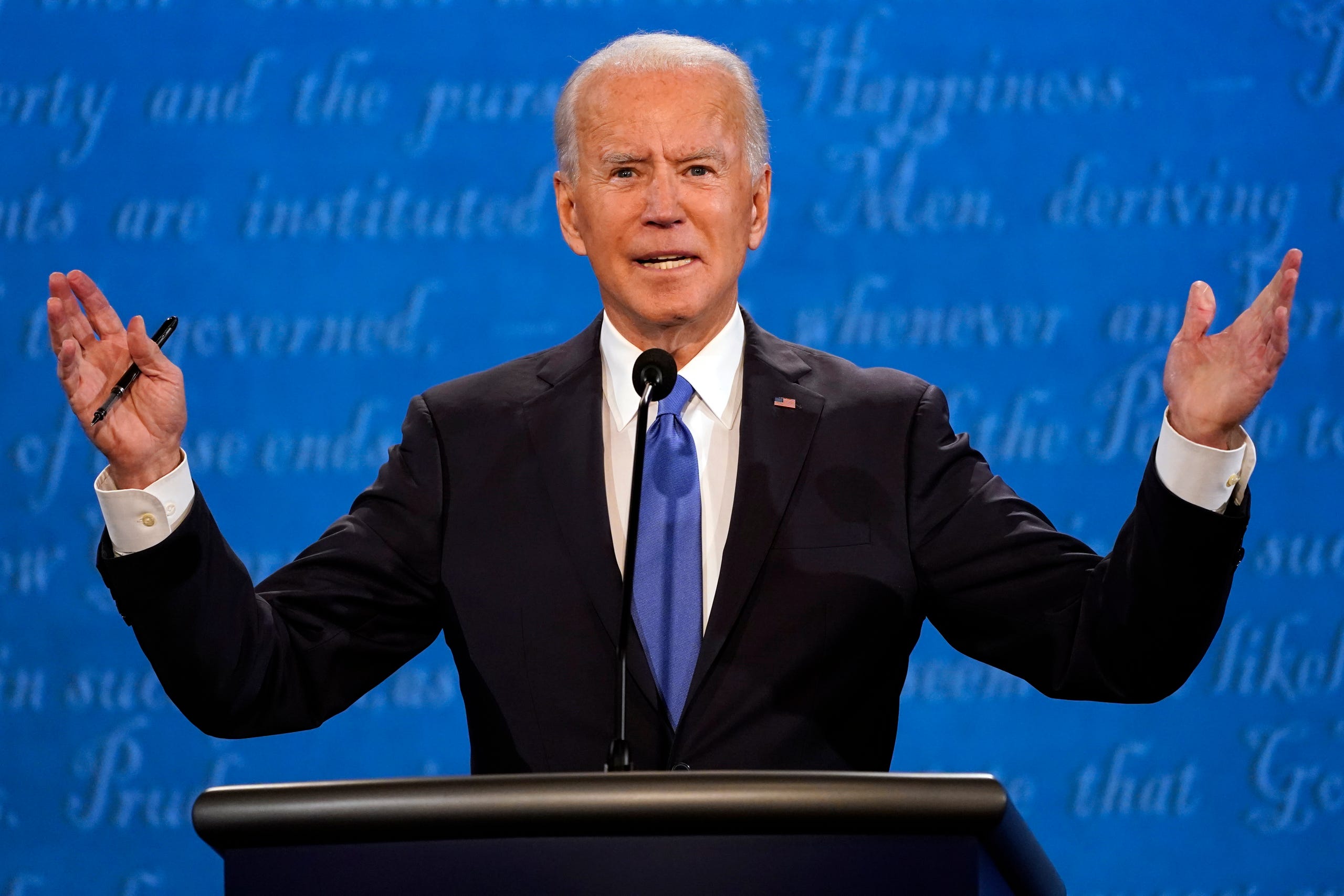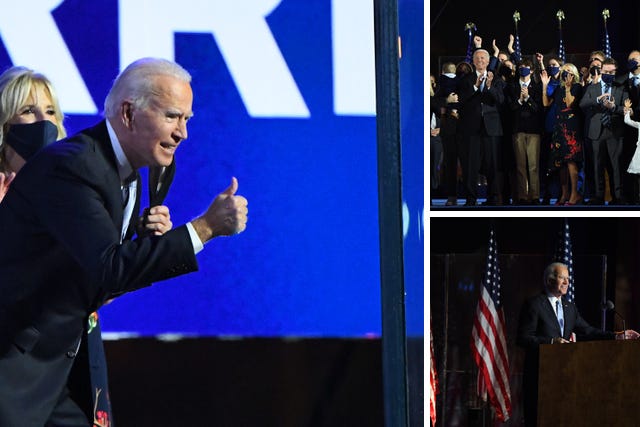Joe Biden's election as the 46th president of the United States may reshape the workplace, raising the minimum wage, encouraging diversity, and restoring protections eliminated by his predecessor, Donald Trump.
Biden has said he will remove barriers to union membership, help parents get affordable child care, and ensure that families can take time off with pay when they need to care for an ill relative.
The former vice president takes office in a troubled time for workers. The coronavirus pandemic is still battering the economy even though half the 22 million jobs lost in early spring have been recovered. With the virus surging across the country, some states are again imposing business restrictions. And Congress remains deadlocked over a new relief bill that would provide more aid to struggling firms.
Here is what we might see unfold in the workplace over Biden's first term:
Minimum wage
The federal minimum wage has been stuck at $7.25 since 2009. Biden is for increasing it to $15 an hour and expanding the pool of workers who can earn it.
Biden has promised to prohibit employers from paying a lower minimum wage to employees who earn tips. Domestic and farm workers would be able to earn elevated pay. And once wages get to $15, increases would be linked to median wage growth, Oxford Economics says.
The pay hike could lead to higher prices, a lower number of people being hired, and increased reliance on labor alternatives like automation, Oxford says. Businesses might pare other benefits as well to cut costs. But a boost in wages would also help many lower-income Americans.
"Businesses would pass on part of their increased labor costs to consumers, reducing consumption and sales,'' it said in a report. "In addition, businesses would hire fewer workers ... All these factors would weigh on employment and income, but there would be offsetting effects as roughly 30 million, mostly lower-income households, would benefit from higher minimum wages.''
Diversity training
Biden will likely undo an executive order from Trump restricting government contractors and federal agencies from providing diversity training.
Initiatives aimed at increased inclusion came into focus after the death of George Floyd, a black man, under the knee of a white Minneapolis police officer in May, and the deaths of numerous other African Americans at the hands of law enforcement.
But amid a national reckoning on race that prompted corporate America to proactively root out bias, Trump deemed diversity training "divisive.'' His executive order said it aimed "to combat offensive and anti-American race and sex stereotyping and scapegoating.''
Civil rights groups filed a lawsuit last month charging that the executive order violated free speech right and intended "to undermine efforts to foster diversity and inclusion in the workplace.''
The Trump administration also challenged efforts by some corporations to bring more African Americans and other people of color into executive roles.
The Office of Federal Contract Compliance Programs, which oversees federal contractors for the Labor Department, recently questioned whether plans by Microsoft and Wells Fargo to double the ranks of Black managers and executives over the next five years violate federal laws barring discrimination based on race. Both corporations say they believe their plans are legal.
Biden has pledged to enhance racial equity, from lending to homeownership, and he says he will encourage diversity in top roles at federal agencies.
The U.S. is the only developed nation without paid maternity leave. But that could change with Biden in the nation's highest office. He is proposing up to 12 weeks of paid family and medical leave.
Child care
Many Americans don't work a five-day, 9-to-5 schedule, making it even harder to find someone they trust to watch their children.
To address that challenge, Biden says he will offer bonus payments to child care services that are open off hours.
Businesses will also be encouraged to build more child care facilities. Employers would get a federal tax credit equal to half of the first $1 million they spend on building a facility.
Unions
Union membership has dipped dramatically in recent decades, and Biden says he intends to shore up the ability of American workers to organize.
He would prohibit state laws that prevent unions from collecting dues from all the workers that they represent. He also pledges to form a cabinet-level team that will come up with a framework to boost union membership and increase protections for workers who strike or initiate boycotts.
Biden will also push laws that punish companies and individual executives who block employee efforts to form a union. And he will steer federal contracts away from employers who don't promise to refrain from hindering union activity.
Biden has said he will ensure agricultural and domestic workers are covered by the same federal safeguards that protect most other workers.
And Biden says that he will also aggressively go after companies that purposely misclassify their workers as independent contractors to avoid paying taxes and other benefits. The new legislation would call for those businesses to pay significant penalties for such actions.
“More than Biden winning it, it’s that Trump lost.”
— Bloomberg Quicktake (@Quicktake) November 9, 2020
From Spain to China, here’s how people around the world reacted to Joe Biden winning the U.S. #Election2020 pic.twitter.com/Jf8I9XzrQh




